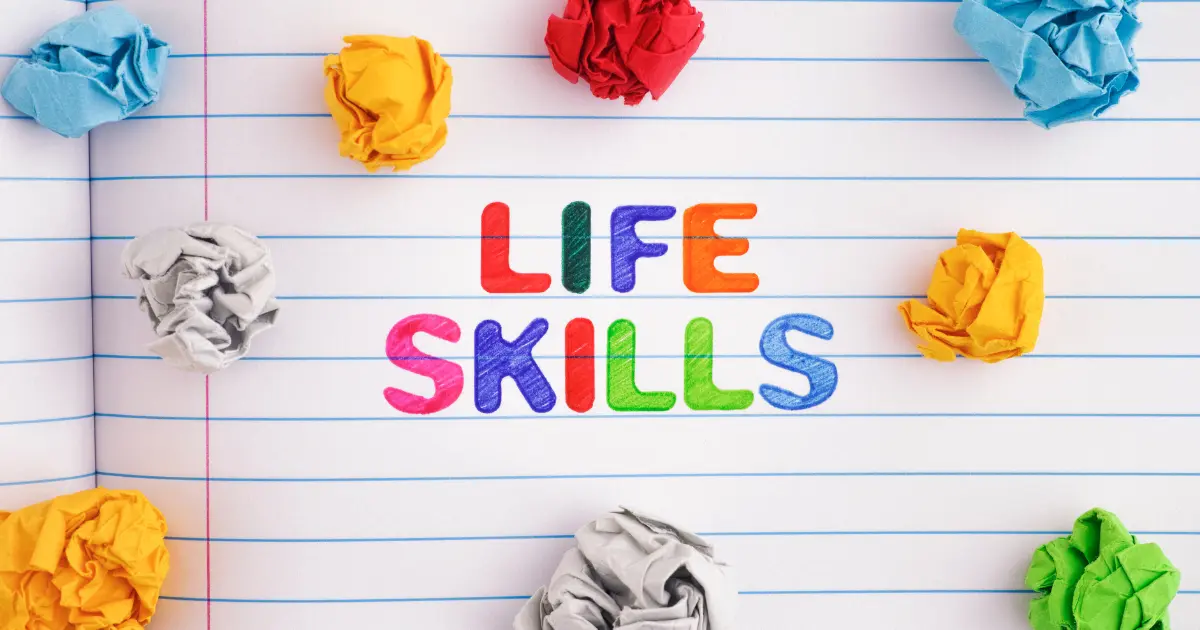In today’s fast-paced world, life skills are essential for navigating the challenges of adult life. These life skills for adults enable individuals to handle challenges, make informed decisions, and lead fulfilling lives. From financial literacy to emotional intelligence, mastering these skills can significantly impact one’s personal and professional success.
Importance of Life Skills
Life skills are crucial for many reasons. They help every individual manage everyday tasks, build healthy relationships with people, and achieve personal and career goals. These skills also contribute to overall well-being and resilience, helping adults to adapt to changing circumstances and to overcome obstacles.
Types of Life Skills
Financial Literacy

Budgeting
Creating and sticking to a budget is fundamental for financial stability for any individual. It involves tracking day to day income and expenses, setting financial goals, and making informed spending decisions.
Saving and Investing
Understanding the principles of saving and investing is crucial for building wealth and ensuring financial security. This includes knowing different types of savings accounts, investment options, and risk management strategies.
Credit Management
Managing credit wisely involves understanding credit scores, using credit cards responsibly, and knowing how to reduce and avoid debt which are important life skills for adults.
Health and Wellness

Nutrition and Diet
Maintaining a balanced diet is essential for physical health. This includes understanding nutritional needs, reading food labels, and making healthy eating choices.
Exercise and Fitness
Regular physical activity is important for maintaining overall health. It involves finding an exercise routine that fits one’s lifestyle and understanding the benefits of different types of workouts.
Mental Health
Prioritizing mental health is also important for overall well-being. This includes recognizing signs of mental health issues, seeking professional help, and practicing stress management techniques.
Emotional Intelligence

Self-Awareness
Being aware of one’s emotions, strengths, and weaknesses is the first step toward emotional intelligence. It involves introspection and mindfulness practices.
Self-Regulation
Managing emotions effectively is key to emotional intelligence. This includes techniques for staying calm under pressure and handling stress situations patiently.
Also Read: Emotional Monitoring: Understanding And Managing Emotional Well-Being
Empathy
Understanding and sharing the feelings of others is crucial for building strong relationships. It involves active listening and caring for each other, which are important life skills for adults.
Communication Skills

Verbal Communication
Effective verbal communication involves clear and concise speech, active listening, and the ability to communicate ideas effectively in work place.
Non-Verbal Communication
Body language, facial expressions, and other non-verbal cues play a significant role in communication. Understanding these can help developing interpersonal interactions.
Conflict Resolution
Handling conflicts constructively is essential for maintaining healthy relationships. This includes negotiation, mediation, and problem-solving skills.
Professional Skills

Time Management
Managing time effectively involves prioritizing tasks, setting goals, and using tools like calendars and planners.
Critical Thinking
Critical thinking involves analyzing information, evaluating arguments, and making informed decisions. It’s a valuable skill in both personal and professional contexts.
Networking
Building and maintaining professional relationships is crucial for career advancement. This includes attending networking events, using social media, and maintaining a professional online and offline presence.
Signs of Lacking Life Skills
Identifying a lack of life skills for adults can be challenging but recognizing the signs is the first step toward improvement. Common symptoms include financial instability, poor health, strained relationships, and career stagnation. Understanding these signs can help individuals take proactive steps to develop necessary skills.
Causes and Risk Factors
Several factors can contribute to a lack of life skills for adults. These include limited access to education, lack of role models, and socio-economic challenges. Additionally, individuals who do not actively seek self-improvement may struggle to develop these essential skills.
Self-Assessment
Self-assessment tools and professional evaluations can help individuals identify areas where they lack life skills. These tools often include questionnaires and checklists that assess various aspects of one’s life, from financial management to emotional intelligence.
Skill Development
Education and Training
Attending workshops, seminars, and online courses can provide valuable knowledge and practical skills. Many institutions offer programs focused on financial literacy, communication, and other essential life skills.
Mentorship and Coaching
Working with a mentor or coach can provide personalized guidance and support. These professionals can help individuals set goals, develop plans, and stay motivated.
Practice and Application
Developing life skills requires regular practice and real-world application. This involves setting aside time to practice new skills, seeking feedback, and making adjustments as needed.
Conclusion
Mastering life skills for adults is very important for a fulfilling and successful life. These skills enable individuals to handle everyday challenges, build meaningful relationships, and achieve their goals. By continuously developing and applying these skills, adults can enhance their quality of life and contribute positively to their communities.
Frequently Asked Questions (FAQs)
What are life skills?
Life skills are abilities and behaviors that help individuals effectively deal with the demands and challenges in everyday life. They include financial literacy, health and wellness, emotional intelligence, communication skills, and professional skills.
Why are life skills for adults is important?
Life skills for adults is crucial for managing everyday tasks, building healthy relationships, achieving personal and professional goals, and maintaining overall well-being and resilience.
How can adults develop life skills?
Adults can develop life skills through education and training, mentorship and coaching, and regular practice and application. Attending workshops, seminars, and online courses can provide valuable knowledge and practical skills.
What are the signs of lacking life skills?
Common signs of lacking life skills includes financial instability, poor health, and unsuccessful career . Recognizing these signs can help individuals take proactive steps to develop necessary skills.
How do financial literacy and budgeting contribute to life skills?
Financial literacy and budgeting are essential life skills that help individuals manage their finances effectively, make informed spending decisions, and achieve financial stability and security.
What role does emotional intelligence play in life skills?
Emotional intelligence involves self-awareness, and self-regulation. It is crucial for building strong relationships, managing emotions effectively, and handling stress.
Can life skills be learned at any age?
Yes, life skills can be learned and developed at any age. Continuous education, practice, and seeking guidance from mentors or coaches can help individuals of all ages improve their own life skills.
How can mentorship and coaching help in developing life skills?
Mentorship and coaching provide personalized guidance, support, and motivation. These professionals can help individuals set goals, develop plans, and stay motivated to achieve their personal and professional aspirations.

